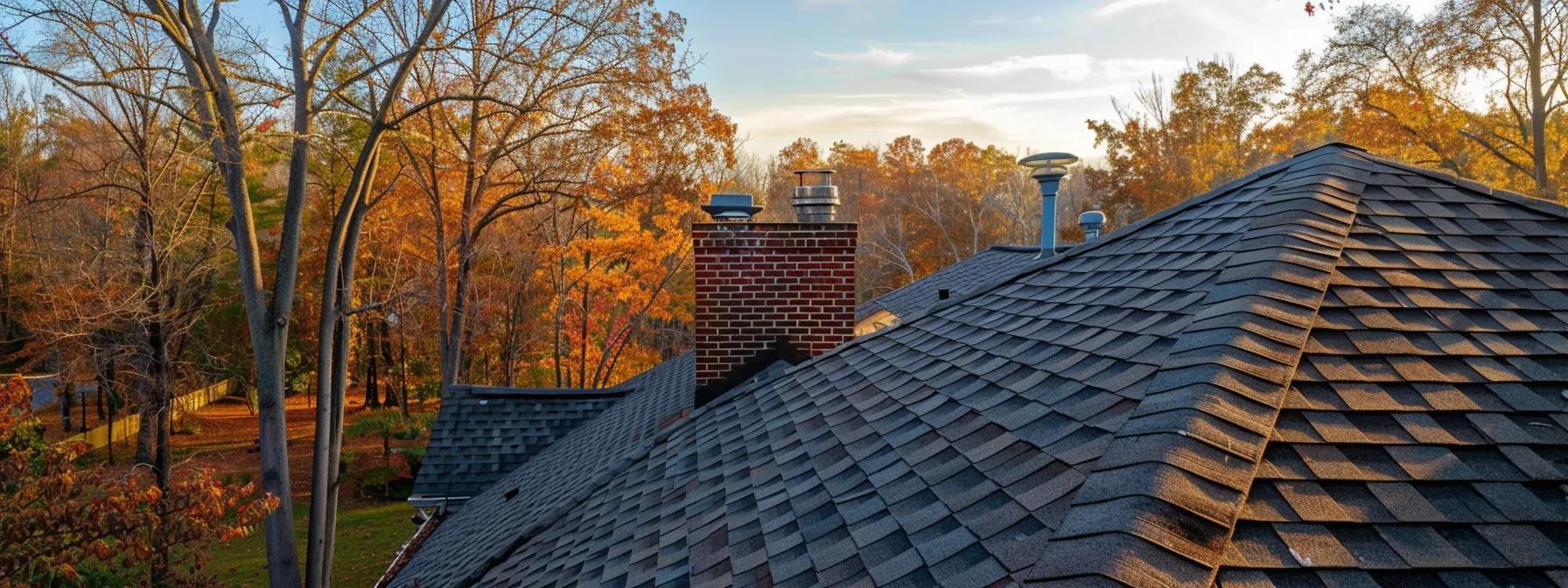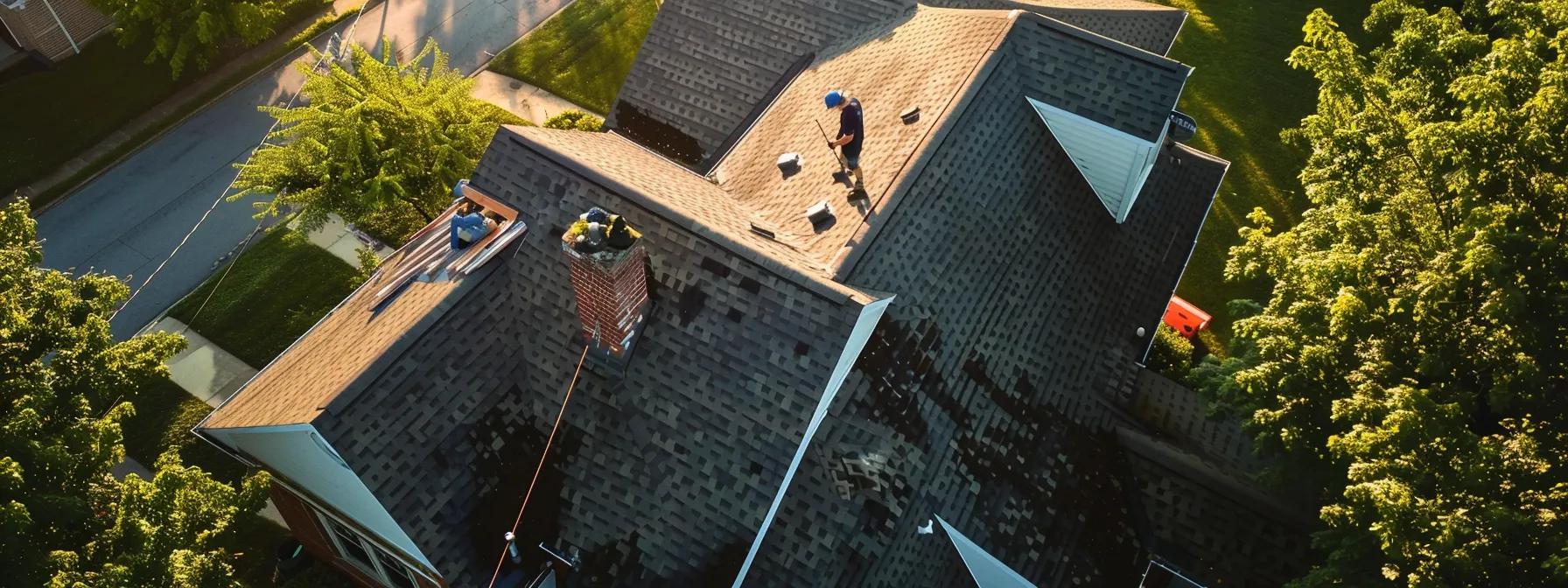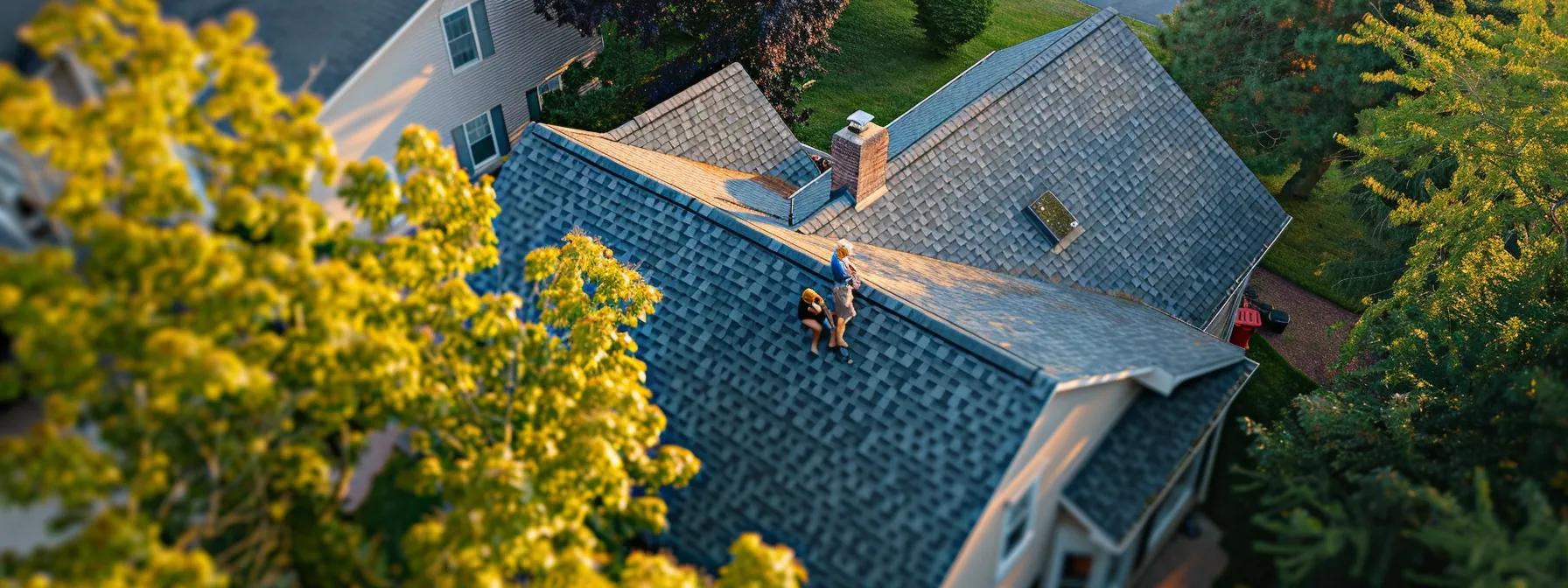
Expert Residential Roofing Contractor for Your Home Repairs: Comprehensive Services and Solutions
Introduction
Venegas Contracting LLC is a locally owned and operated exterior contracting company specializing in residential and commercial roofing, roofing-siding, siding, gutters, gutters and downspouts, windows, doors, and solar, including solar-panel installations. Homeowners and business owners in Maryland, West Virginia, and Pennsylvania trust Venegas Contracting LLC for high-quality roof repairs, replacements, and installations. This article details key residential roofing services provided by expert contractors, explains the various roofing materials available, and examines factors influencing roof replacement and repair costs. It also outlines how to choose the right residential roofing contractor, presents a step-by-step process for roof replacement and repair, evaluates weather impacts on roofing, and answers common questions regarding roofing maintenance and performance. Additionally, the company offers deck-builder services to complement their comprehensive range of exterior projects.
With rising concerns over severe weather, water damage, and mold, selecting a reputable contractor with experience in installing gutters and downspouts is essential. This guide explains procedural steps and the material science behind roofing options like solar-panel integration, asphalt shingles, metal roofing, tile, and wood shake, as well as innovative roofing-siding techniques. The goal is to simplify your decision-making with clear, actionable advice focused on quality, durability, and cost-effectiveness, and it even suggests consulting a deck builder to ensure that all complementary exterior features are harmoniously implemented.
What Are the Key Residential Roofing Services Offered by Expert Contractors?

Expert contractors provide a range of residential roofing services including detailed roof inspections, repairs, full roof replacement, professional roof installation, and gutters and downspouts installation. Each service is designed to address specific roofing issues and enhance durability and energy efficiency using advanced tools and proven methods. In addition, modern solar-panel integration not only boosts energy efficiency but also complements our roofing-siding options for a complete exterior upgrade. For homeowners interested in extending their living space, our deck-builder consultations help create a seamless transition between indoor comforts and stylish outdoor areas.
What Does Roof Replacement Involve and When Is It Needed?
Roof replacement involves removing old roofing material down to the deck – in many cases, a deck-builder may need to assess the underlying structure – repairing any underlying damage, and installing new underlayment along with updated roofing-siding as part of the final surface. This process is necessary when extensive wear, water damage, mold, or structural issues jeopardize the roof’s integrity, particularly if the gutters and downspouts have become compromised. Frequent repairs or patch jobs that no longer offer consistent protection often indicate that replacement is the best solution, and incorporating a solar-panel system can further enhance energy efficiency.
How Do Roof Repair Services Address Common Home Roofing Issues?
Roof repair services focus on stopping leaks, replacing damaged shingles or tiles with roofing-siding materials, reinforcing structures (often in collaboration with a deck-builder), and clearing gutters and downspouts to ensure proper drainage. Contractors use diagnostic techniques to locate water intrusion caused by failed flashing, wind, or lightning. Modern repairs may include high-performance membranes, liquid-applied coatings, and polymer-based sealants to prolong roof life, minimize interior damage, and boost energy efficiency through the integration of solar-panel systems by preventing heat loss or gain.
What Is Included in Professional Roof Installation for New Homes?
Professional roof installation for new homes is a comprehensive process that begins with a design consultation and material selection. Contractors evaluate the home’s structural integrity and recommend solutions based on climate, design, and budget. Installation includes preparing the roof deck, laying an underlayment, and applying the chosen roofing material—whether asphalt shingles, metal panels, or tiles—followed by sealing joints to prevent future weather issues. This careful process ensures both functionality and improved curb appeal.
Why Are Regular Roof Inspections Essential for Homeowners?
Regular roof inspections serve as preventive maintenance by identifying early signs of damage such as small leaks, missing shingles, or deteriorating sealants. Early detection allows timely repairs before minor issues escalate, preventing more costly future repairs or full roof replacement. Inspections also help maintain warranty requirements set by roofing manufacturers.
How Do Emergency Roofing Services Provide Rapid Solutions?
Emergency roofing services offer immediate assistance during sudden roof failures or severe storm damage. When high winds, hail, or heavy rain compromise a roof, an emergency roofer applies temporary fixes such as protective tarps or membranes. These prompt measures secure the roof and minimize further damage until permanent repairs or replacement can be arranged.
Which Roofing Materials Are Best for Residential Roof Repairs and Replacements?
Choosing the right roofing material is critical for durability, energy efficiency, and aesthetic appeal. Materials differ in lifespan, maintenance needs, and resistance to weather. Contractors consider factors like local climate, roof pitch, and structural support when recommending a material that is both cost-effective and resilient against wind, heat, mold, and hail.
What Are the Advantages of Asphalt Shingles for Home Roofs?
Asphalt shingles are popular for their affordability, ease of installation, and variety of styles and colors. They withstand moderate weather including rain, wind, and sun, and are enhanced with polymeric coatings to improve water resistance. With proper maintenance, asphalt shingles can protect a home for 20 to 30 years, making them a reliable choice for many homeowners.
How Does Metal Roofing Compare for Residential Use?
Metal roofing offers exceptional durability, energy efficiency, and a longer lifespan of 40 to 70 years. Resistant to extreme weather and fire, metal roofs reflect solar heat, reducing cooling costs. While initial costs are higher compared to asphalt, reduced maintenance and energy savings make metal roofing a smart long-term investment. Some metal roofs can be installed over existing materials, minimizing waste and installation time.
When Should You Consider Tile or Wood Shake Roofing?
Tile roofing, available in clay or concrete, is prized for its distinctive Mediterranean or Spanish look and superior durability, lasting 50 to 100 years. It resists fire and insects while providing excellent thermal properties. Wood shake roofing offers a rustic, natural appearance and good insulation but requires more upkeep due to susceptibility to rot and insect damage. Both options allow for unique visual appeal while balancing energy efficiency and performance.
How Do Roofing Materials Impact Longevity and Weather Resistance?
The performance of a roof in harsh weather largely depends on the selected materials. Metal roofs, tile, and high-quality asphalt shingles are engineered to endure heavy rain, wind, hail, and snow. The use of proper underlayment and advanced coatings further shields the roof from moisture and UV damage. Ultimately, the choice of material affects the roof’s lifespan and its ability to withstand local weather conditions.
How Much Does Residential Roof Replacement and Repair Cost?

Roof replacement and repair costs depend on factors like roofing material, labor, roof size, and structural complexity. Additional costs may include disposal fees, permits, and premium charges for emergency services. Detailed estimates from contractors help homeowners budget and avoid unexpected expenses.
What Factors Influence the Cost of Roof Replacement?
Several factors affect roof replacement costs: • Material Choice: Premium options like metal or tile cost more than asphalt shingles.
• Roof Size and Pitch: Larger and steeper roofs require more materials and labor.
• Roof Deck Condition: Structural repairs increase costs.
• Geographic Location: Regional differences affect labor and material prices.
• Additional Components: Skylights, chimneys, and ventilation add expense.
Contractors assess these factors and use standardized pricing models to provide accurate estimates.
How Are Roof Repair Costs Determined?
Repair costs are based on the extent of damage, repair type, and the number of tasks required. Simple fixes such as replacing a few shingles or sealing vents are relatively inexpensive compared to extensive repairs addressing widespread water intrusion or structural issues. Contractors determine costs through detailed roof inspections and charge either a flat rate or an hourly rate depending on the task.
What Financing Options Are Available for Roofing Projects?
For budgeting roofing projects, many contractors like Venegas Contracting LLC offer financing plans with low-interest rates. Homeowners can also consider personal loans, home improvement loans, or government programs for energy-efficient upgrades. Comparing terms from banks or credit unions helps choose the best financing option based on project cost and repayment plans.
How Can Homeowners Get Accurate Roofing Quotes?
Obtaining accurate quotes involves requesting bids from several reputable contractors after a thorough roof inspection. Detailed quotes should list material costs, labor, permits, and any additional repairs. Transparency in pricing along with verifying credentials and customer reviews helps ensure that the chosen quote reflects quality workmanship.
How to Choose the Right Residential Roofing Contractor for Your Home Repairs?
Choosing the right residential roofing contractor is crucial. The ideal contractor has substantial experience, positive testimonials, a strong local reputation, and the necessary certifications. Transparent communication, competitive pricing, and comprehensive warranties on materials and workmanship are key attributes.
What Qualifications and Experience Should You Look For?
Homeowners should verify that contractors hold valid licenses, proper insurance, and manufacturer certifications (e.g., GAF Certified Contractor). A history of successful roof replacements and repairs, coupled with references and past case studies, indicates technical expertise and reliability in handling complex projects.
Why Is Local Expertise Important in Roofing Services?
Local contractors understand regional weather patterns, building codes, and environmental challenges. Their familiarity with local suppliers and permit processes often results in better pricing and smoother project management. Local expertise ensures that the roofing design is tailored to withstand regional conditions.
How Do Customer Reviews and Testimonials Influence Your Choice?
Customer reviews offer social proof of a contractor’s performance and reliability. Positive feedback and detailed testimonials about timely emergency repairs or successful roof replacements build trust, while negative reviews may signal potential issues like delays or cost overruns.
What Questions Should You Ask Before Hiring a Roofing Contractor?
Key questions include: • What is your licensing and insurance status?
• Can you provide recent project references?
• What is the estimated timeline?
• How do you handle unforeseen issues?
• What warranties are offered on materials and workmanship?
These questions help ensure that you select a knowledgeable and reliable contractor.
What Is the Step-by-Step Process of Residential Roof Replacement and Repair?

A systematic process is essential for roofing projects. Expert contractors follow these steps to ensure efficiency and long-term durability:
How Is a Roof Inspection Conducted Before Repairs or Replacement?
A certified roofer inspects the entire roof, using tools like moisture meters and infrared cameras to detect damage, water intrusion, and structural weaknesses. The inspection report informs whether repair or full replacement is needed and serves as a benchmark for future maintenance.
What Are the Typical Steps in Roof Replacement Projects?
- Preparation: Secure the site and protect surrounding areas.
- Removal: Remove old roofing material and identify damages.
- Installation of Underlayment: Apply a waterproof membrane over the roof deck.
- Material Installation: Lay new roofing materials in overlapping patterns.
- Flashing and Sealing: Install flashings and seal joints around vents and chimneys.
- Final Inspection and Cleanup: Conduct a detailed inspection and clean up the area. These steps ensure the new roof meets quality, durability, and performance standards.
How Are Roof Repairs Executed to Ensure Long-Term Durability?
Repairs begin with identifying the source of damage, such as water intrusion or wind impact. Solutions may include replacing individual shingles, applying a liquid-applied roofing membrane, or reinforcing the roof deck. The chosen method is based on the severity of damage and is aimed at extending the roof’s lifespan.
What Warranties and Guarantees Should Homeowners Expect?
Homeowners should receive comprehensive warranties covering both materials and labor. Typically, these warranties guarantee a leak-free roof for 20-30 years (architectural shingles) and ensure repair workmanship meets quality standards. Detailed warranty documentation provides peace of mind and clarifies post-installation care. Specific warranty ranges will be dependent on the roofing products used.
How Do Weather Events Affect Residential Roofing Needs and Repairs?
Weather directly influences both the frequency and type of roof repairs. Severe weather—high winds, heavy rains, snow, hail, and temperature extremes—can cause rapid damage. Expert contractors design roofs to withstand normal conditions and offer emergency services when storms cause shingle loss, water intrusion, mold growth, or structural weakening.
What Types of Weather Damage Commonly Impact Roofs?
• Wind Damage: Lifts or tears shingles, creating gaps for water.
• Hail Damage: Chips or dents roofing materials, compromising protection.
• Rain and Water Damage: Leads to leaks and mold growth.
• Snow and Ice Damage: Excess weight and ice dams can block water runoff.
Each type reduces performance, increases repair costs, and may affect energy efficiency.
How Can Emergency Roofing Services Mitigate Weather Damage?
During severe weather damage, emergency roofing services apply temporary fixes—such as tarps or membranes—to secure the roof. This rapid response minimizes interior damage and repair costs until a proper restoration is completed.
What Preventative Measures Protect Roofs From Severe Weather?
Regular inspections, prompt repairs, gutter cleaning, and applying waterproof coatings can prevent severe damage. Installing impact-resistant materials and improving attic insulation and ventilation also enhance a roof’s resilience, contributing to better energy efficiency and lower long-term maintenance costs.
How Do Local Building Codes Address Weather-Related Roofing Standards?
Local building codes ensure new roofing meets safety standards for wind resistance, fire protection, and load-bearing capacity. Compliance with these regulations, verified through inspections, protects both the homeowner and the property’s resale value.
What Are Common Questions Homeowners Ask About Residential Roofing Repairs?

Homeowners commonly inquire about costs, durability, and maintenance of roofing repairs. Questions often focus on expected roof lifespan after repair, project duration, and strategies to prevent recurring issues.
How Long Does a Roof Replacement Typically Take?
A typical roof replacement takes about one to two weeks, including inspection, removal of old materials, necessary deck repairs, installation of new roofing, and cleanup. Project duration may vary with roof complexity and weather conditions.
What Are the Signs That Indicate You Need Roof Repairs or Replacement?
Indicators include missing or curled shingles, visible leaks or water stains, granule loss, sagging roof structures, and increased energy bills. Regular inspections can catch these signs early before more extensive work is needed.
How Do You Maintain Your Roof After Repairs or Replacement?
Maintenance includes routine cleaning, periodic inspections, and prompt minor repairs. Removing debris, monitoring for weather damage, and scheduling annual professional inspections help extend the roof’s life and maintain energy efficiency.
Can Roofing Repairs Improve Home Energy Efficiency?
Yes, repairs that address air leaks, insulation gaps, and moisture barriers can significantly enhance a roof’s energy efficiency, leading to lower utility bills and improved indoor comfort.
Frequently Asked Questions
Q: What preventive maintenance practices can extend the life of my roof?
A: Regular cleaning, annual inspections, resealing, and timely minor repairs minimize damage and extend roof life.
Q: How can I tell if a leak is due to roof damage or plumbing issues?
A: Roof leaks typically occur near joints, flashings, or chimneys, while plumbing leaks are localized around fixtures. A professional inspection is recommended.
Q: Are warranties offered on roof repairs as well as full replacements?
A: Yes, many contractors provide warranties on both repairs and full replacements, combining manufacturer material warranties with workmanship guarantees.
Q: What are the benefits of using high-quality roofing materials over standard options?
A: High-quality materials offer greater durability, better weather resistance, improved energy efficiency, and lower long-term maintenance costs.
Q: How do contractors verify that a roof repair meets local building codes?
A: Contractors follow state and local building codes, secure necessary permits, use standardized materials, and pass inspections by local authorities.
Q: Can emergency roofing services be scheduled in-between regular inspections?
A: Absolutely. Emergency services operate 24/7 and provide immediate repairs during unexpected weather events.
Q: What financing options are best when budget constraints are a concern?
A: Options include contractor financing, home improvement loans, and low-interest personal loans. Compare terms to choose one that fits your project budget and repayment capabilities.
Final Thoughts
Venegas Contracting LLC offers a full suite of residential roofing services to address both emergency repairs and complete roof replacements. Their expert contractors use state-of-the-art technology and adhere to rigorous industry standards for long-lasting, energy-efficient roofing solutions. Regular inspections and proactive maintenance ensure that your roof continues to protect your home while enhancing its curb appeal and overall value.
